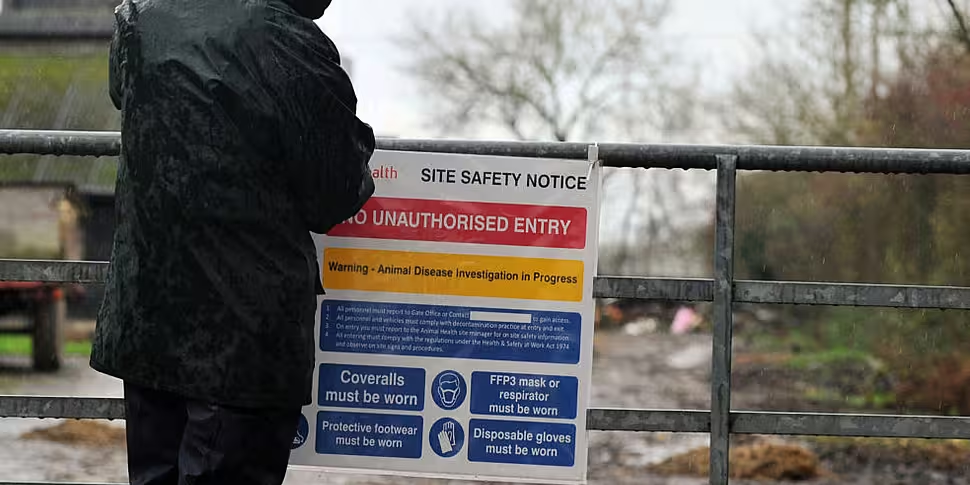The Department of Agriculture is reminding poultry owners to be vigilant after an outbreak of Low Pathogenic Avian Influenza (LPAI) - or bird flu - in England.
It is urging all poultry owners to maintain vigilance during the high-risk period.
The high-risk period in Ireland is from October onwards, due to the arrival of migratory wild birds.
The potential for disease transmission and environmental contamination is increased where they mix with resident wild birds.
The department says: "It is very important for poultry keepers to maintain vigilance in relation to biosecurity, prevent contact with wild birds and report any suspicious clinical signs to their veterinary practitioner or the department."
An outbreak of the H5 strain was confirmed in the UK on Tuesday in a flock of 27,000 commercial chickens in Suffolk.
All the birds are being humanely culled and a 1km restriction zone was put in place around the infected farm.
While low pathogenic bird flu is a less serious strain of H5, it is significant in that it can mutate into highly pathogenic AI.
LPAI can cause mild breathing problems, but affected birds will not always show clear signs of infection.
The last confirmed case of the low pathogenic strain in the UK was in Dunfermline in January 2016.
The number of outbreaks of notifiable avian influenza in Europe during 2019 to date has been small compared to recent years.
However in early October there was an outbreak of H5 LPAI in a flock of free ranging mallard ducks in central France, which was detected as part of the national avian influenza surveillance programme.
Main image: File photo shows staff putting up a no entry sign on a farm in East Yorkshire in 2014 | Image: Steve Parkin/PA Archive/PA Images









